What the Color of Your Tongue Signifies
The human tongue can appear in different shades, and oftentimes, there is an explanation behind it. As it turns out, the unusual color of this organ can signal certain issues happening in the body.
5-Minute Crafts is telling you what the color of your tongue signifies.
❗ This article is for informational purposes only. If there is a change in the color of the tongue and the presence of other symptoms, you should consult a doctor.
Pink
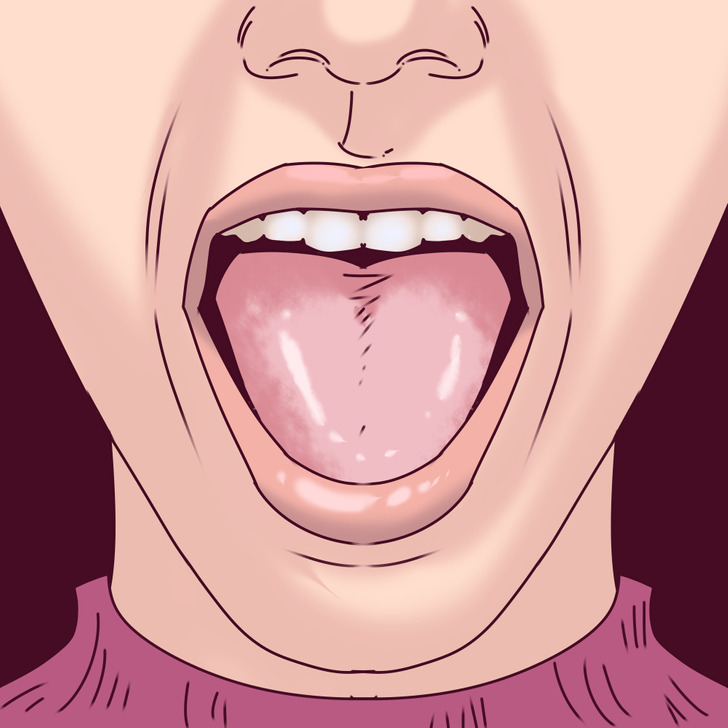
Pink is a normal color for the tongue. A healthy tongue normally has a pink color with a small amount of white coating on it.
White
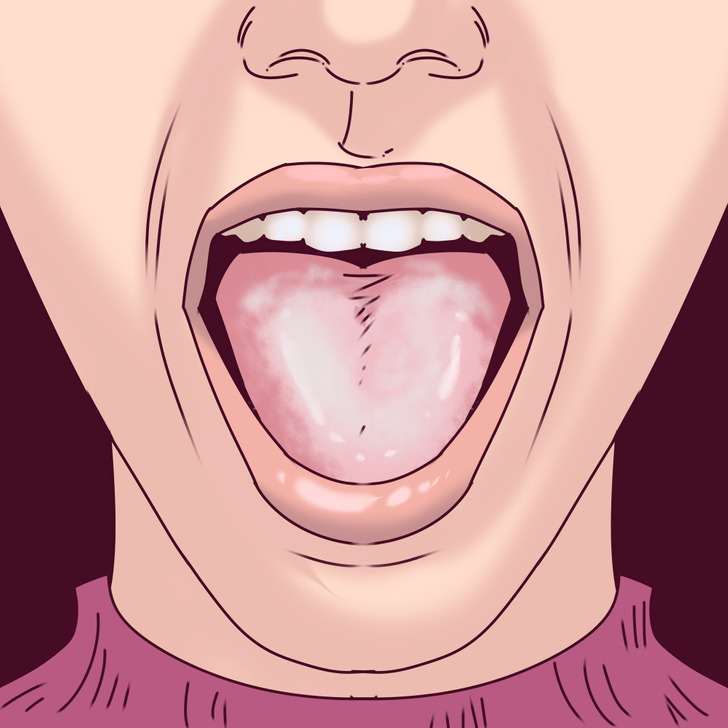
White coating or white stains on the tongue can appear for several reasons:
- Oral thrush is a yeast infection that develops in the mouth. It appears as white patches on the tongue that often have the consistency of cottage cheese. Most often, this disease occurs in infants, the elderly, and in people with weak immunity. Sometimes oral thrush begins after a person has taken a course of antibiotics.
- Leukoplakia is a condition in which the cells in the mouth grow excessively, which provokes the appearance of white stains on the tongue and in the mouth. Leukoplakia often develops in people who use tobacco products.
- Lichen planus looks like lace from white raised lines on the tongue. The exact causes of this disease remain unknown.
Red
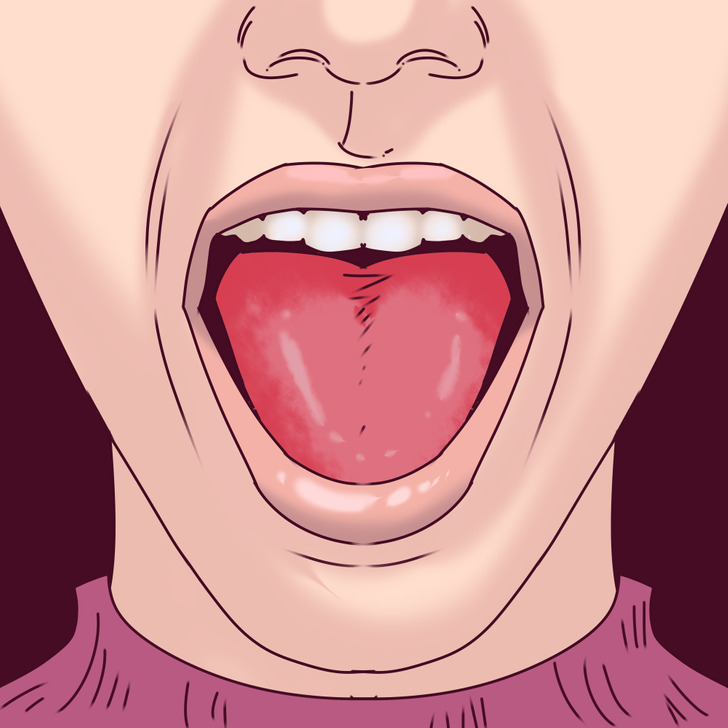
Purple
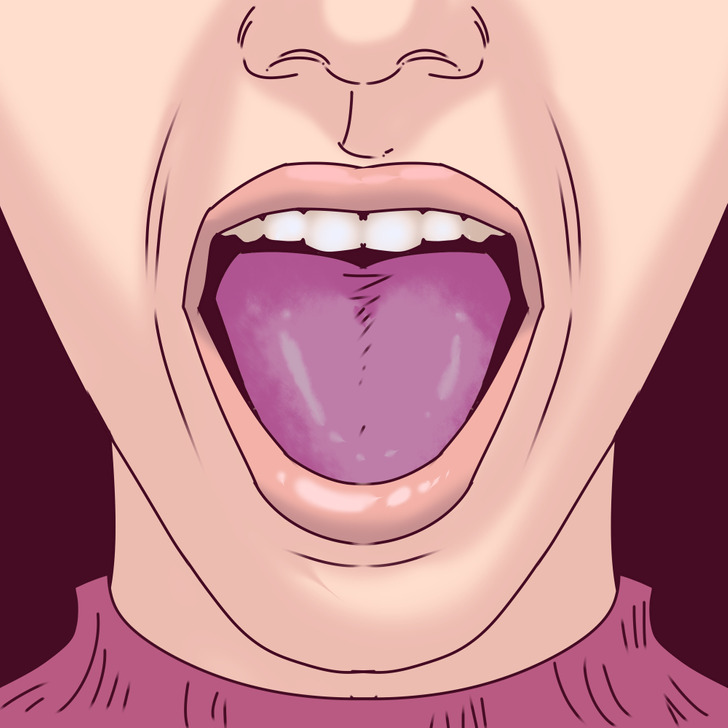
Blue
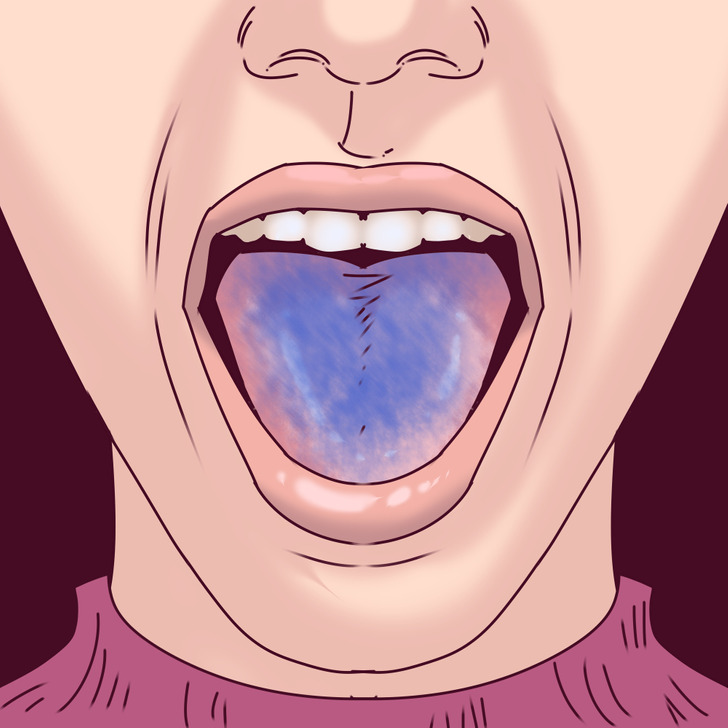
Yellow
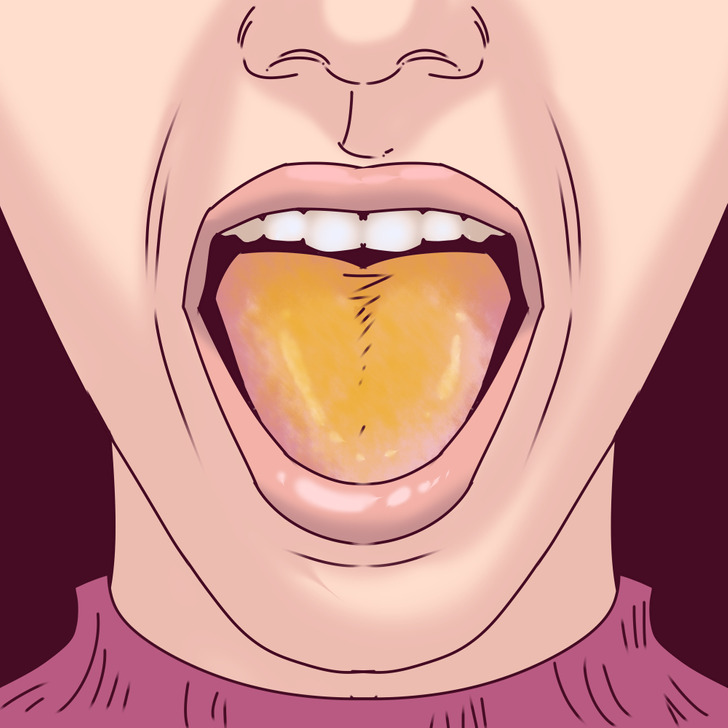
A yellow color on the tongue usually indicates the growth of bacteria in the mouth. This is sometimes caused by poor hygiene and dry mouth. In rare cases, yellowing of the tongue can also be caused by more serious diseases, such as diabetes and jaundice.
The tongue can turn yellow before it becomes black and hairy. It becomes yellow when the papillae grow larger, trapping bacteria on the tongue’s surface.
Orange
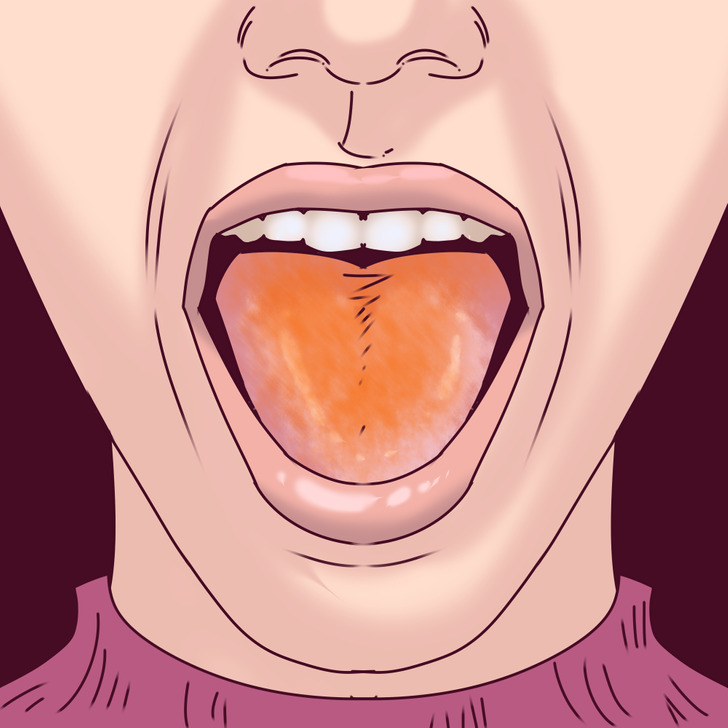
Bad hygiene and dryness can lead to an orange tinge of the tongue.
Some antibiotics and food, like those rich with beta carotene, can cause the tongue to turn orange too.
Green
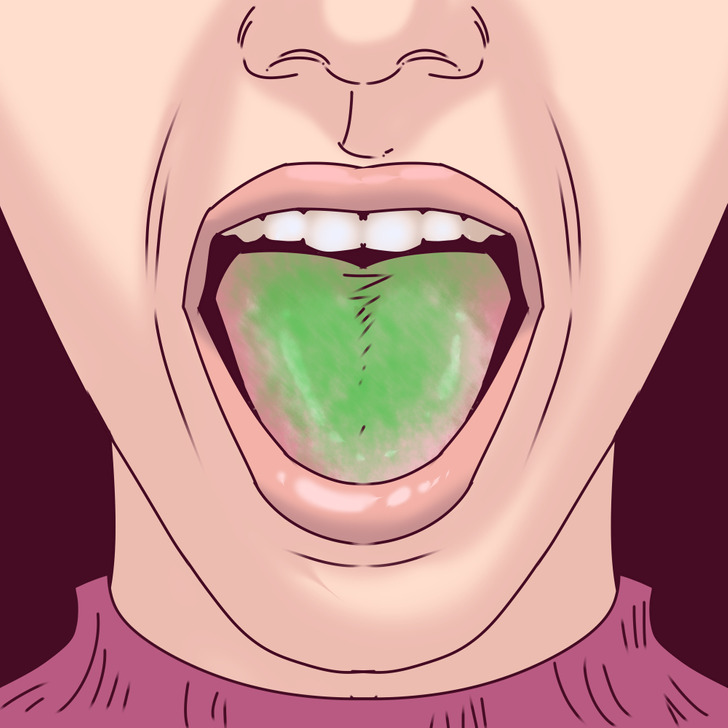
The tongue can turn green due to the accumulation of bacteria on it. The reasons behind it can be the same as those for a white and yellow tongue.
Brown
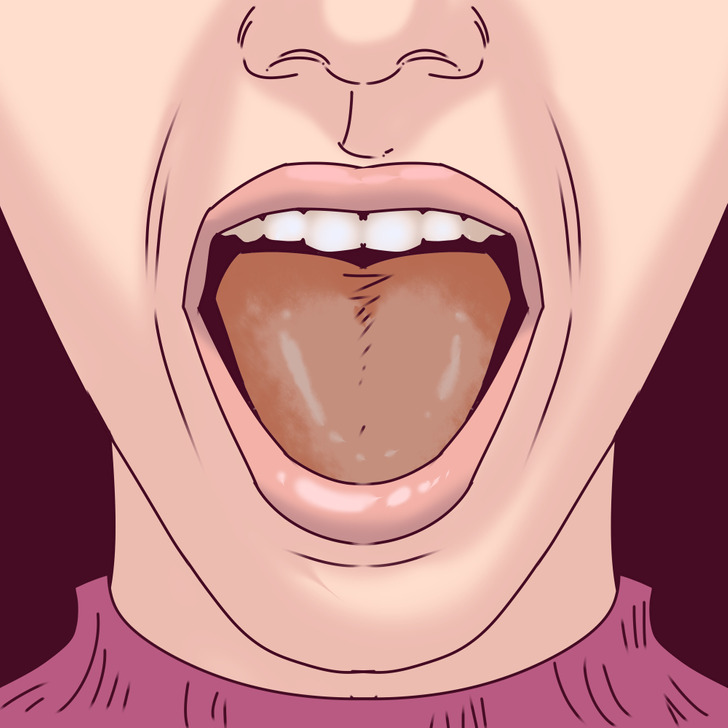
The tongue can turn brown due to certain habits and products. Thus, the consumption of coffee sometimes leads to the appearance of a brown shade on the tongue.
Gray
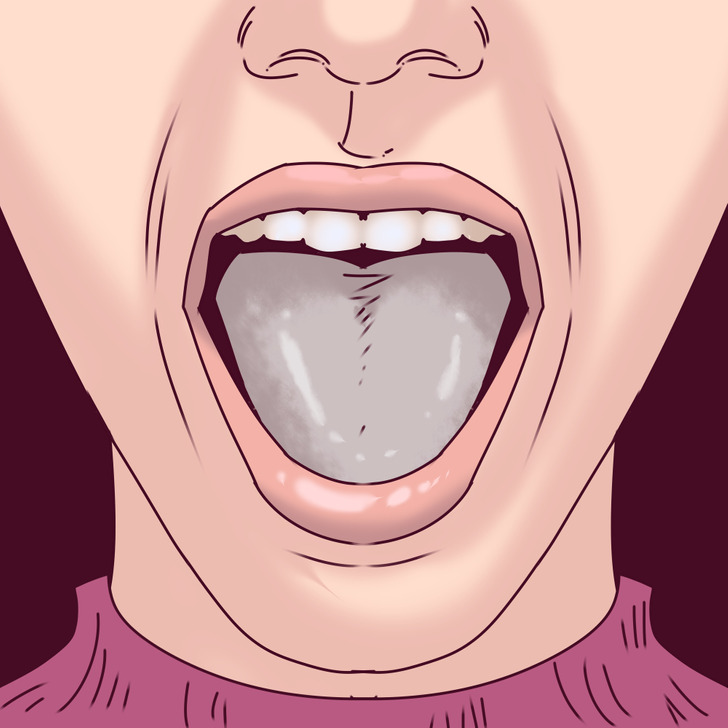
Black
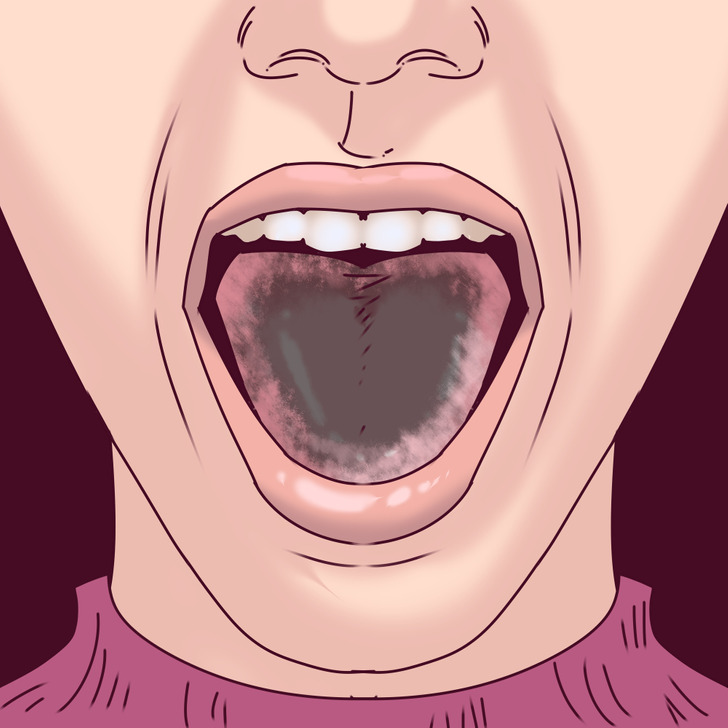
A buildup of keratin can cause the tongue to turn black, and it’s the same protein that our skin, hair, and nails consist of.
A buildup of keratin on the tongue can make it black and hairy. It can be a result of:
- Bad oral hygiene
- Certain medicine, like some antibiotics, for example
- Tobacco use
- Radiation therapy
In rare cases, a black tongue can indicate a serious medical condition, such as diabetes.
Pay attention to the consumption of coffee and black tea, as they can also provoke the darkening of the tongue.
When to seek help from a doctor
The changes in the color of the tongue can be absolutely harmless or, on the contrary, dangerous. For example, you may notice your tongue becomes red after drinking a glass of cherry juice. Also, the tongue can become orange after eating a carrot. It’s absolutely natural, and the tongue goes back to its natural color quickly.
If the changes in your tongue remain for several days, consult a doctor.